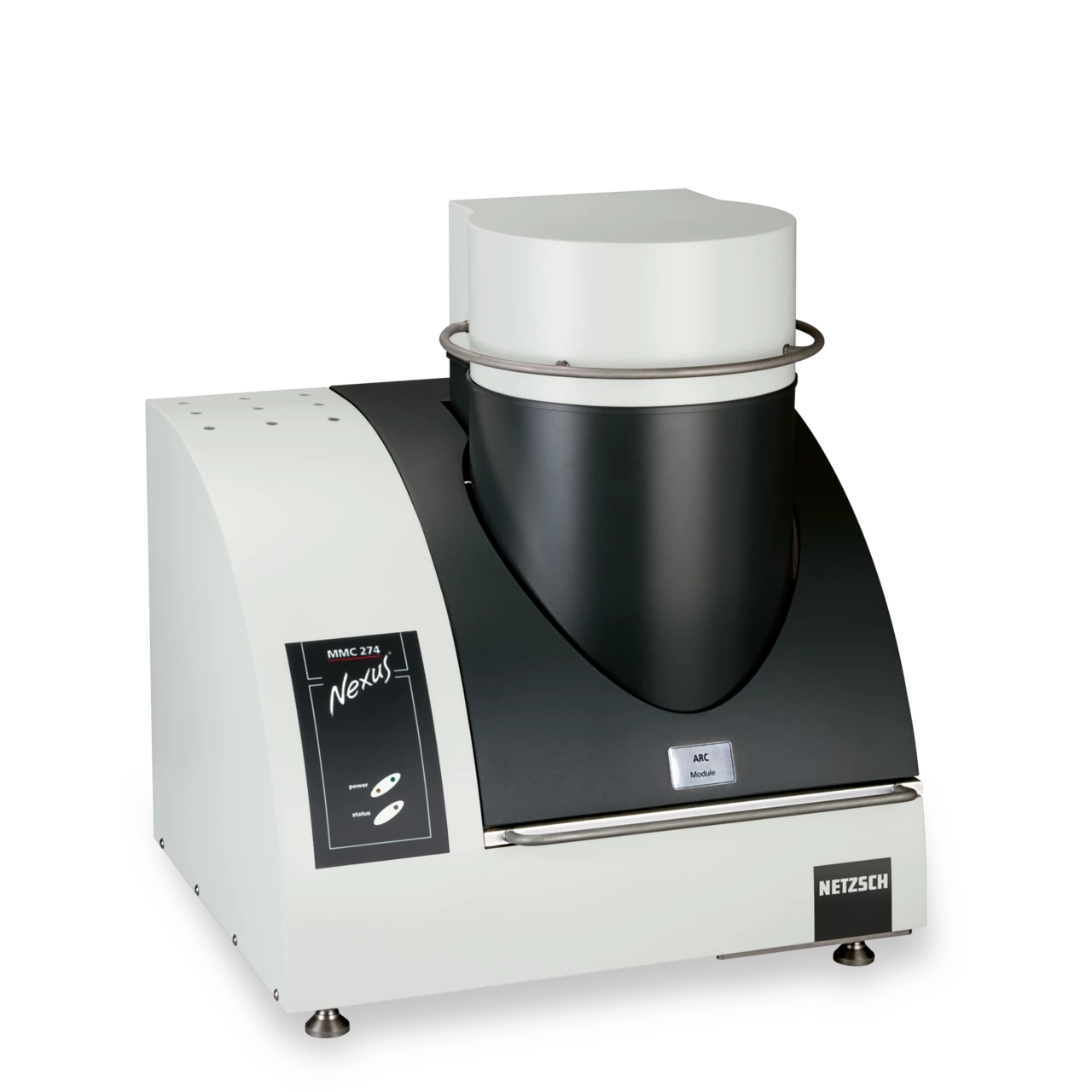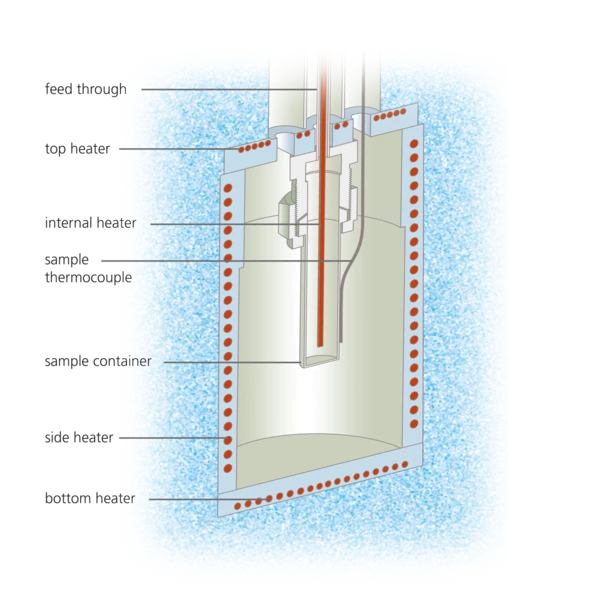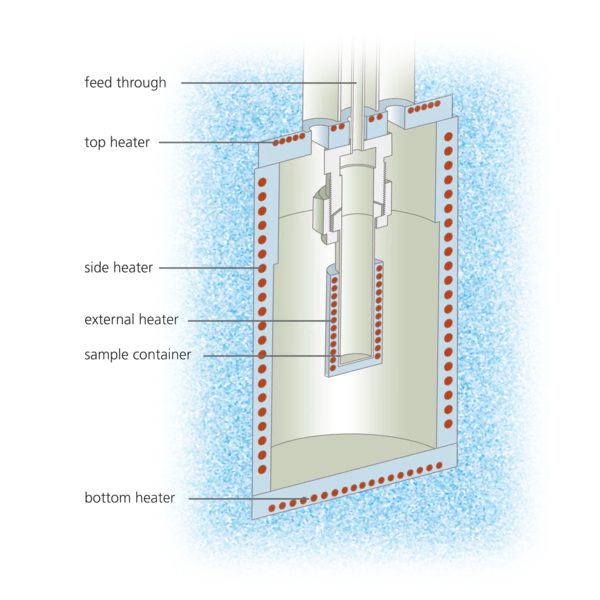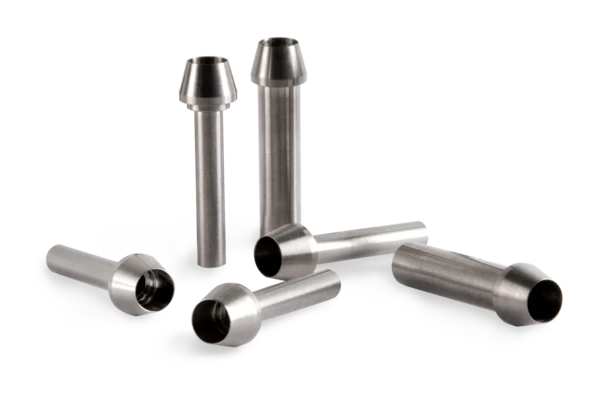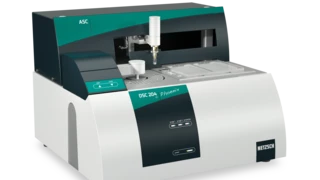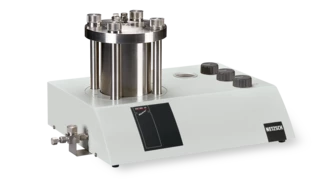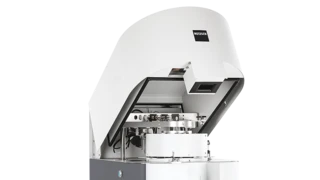The Multiple Module Calorimeter (MMC)A multiple mode calorimeter device consisting of a base unit and exchangeable modules. One module is prepared for accelerating rate calorimetry (ARC), the ARC-Module. A second one is used for scanning tests (Scanning Module) and a third one is related to battery testing for coin cells (Coin Cell Module).MMC 274 Nexus® consists of two parts: the base unit with electronics and the exchangeable calorimeter module. This guarantees maximum flexibility.
Exchangeable calorimeter modules are available for different applications. The Accelerating Rate Calorimeter (Accelerating Rate Calorimetry (ARC)The method describing isothermal and adiabatic test procedures used to detect thermally exothermic decomposition reactions.ARC®) module can be used for standard process safety work. The External heater module can be employed for more sophisticated measurements.
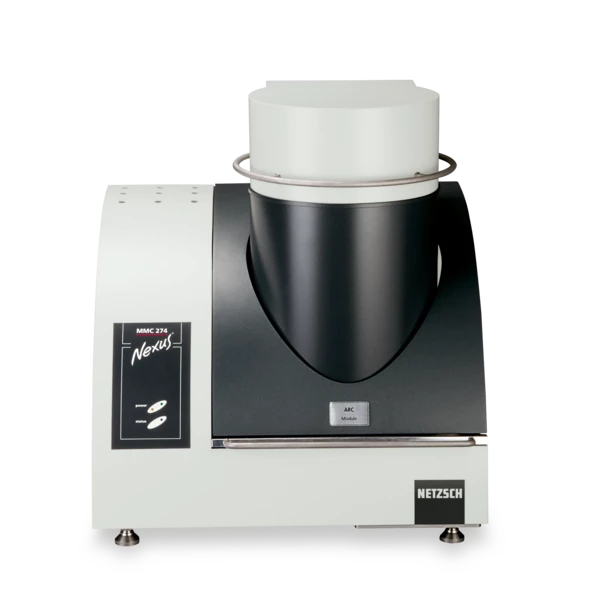
Key Features and Advantages of MMC 274 Nexus®
- Multiple testing modes in one instrument for wide application coverage
- Scanning mode (constant power, constant heating rate)
- IsothermalTests at controlled and constant temperature are called isothermal.Isothermal mode
- AdiabaticAdiabatic describes a system or measurement mode without any heat exchange with the surroundings. This mode can be realized using a calorimeter device according to the method of accelerating rate calorimetry (ARC). The main purpose of such a device is to study scenarios and thermal runaway reactions. A short description of the adiabatic mode is “no heat in – no heat out”.Adiabatic mode with Heat-Wait-Search (HWS)Heat-Wait-Search is a measurement mode used in calorimeter devices according to accelerating rate calorimetry (ARC).Heat-Wait-Search for process safety tests
- Exchangeable calorimeter modules in one table-top instrument
- Accelerating Rate Calorimetry (ARC)The method describing isothermal and adiabatic test procedures used to detect thermally exothermic decomposition reactions.ARC® module for safety testing
- External sample heater module for scanning tests as with DSC
- Wide temperature range up to 500°C
- Wide pressure range up to 150 bar (15 MPa)
- Various sample containers of different materials and volumes
- Proteus® software for the evaluation of onset, peak, area, etc., which may be combined with other thermoanalytical data in one plot

Request a Quote
Technical Data
Temperature range
Temperature readability
Heating rate
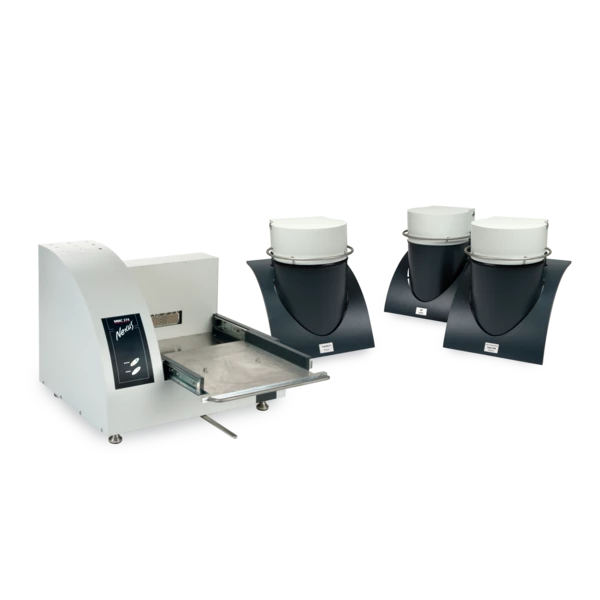
Pressure range:
0 to 150 bar
Pressure readability:
0.01 bar
Sample container volume:
0.1 ml to 8.5 ml
Tracking rate - Accelerating Rate Calorimetry (ARC)The method describing isothermal and adiabatic test procedures used to detect thermally exothermic decomposition reactions.ARC® and scanning module:
up to 50 K/min
Literature
Application Literature

